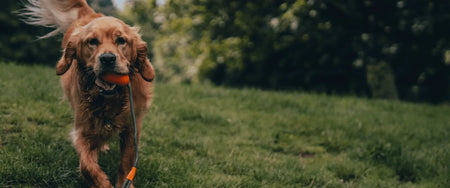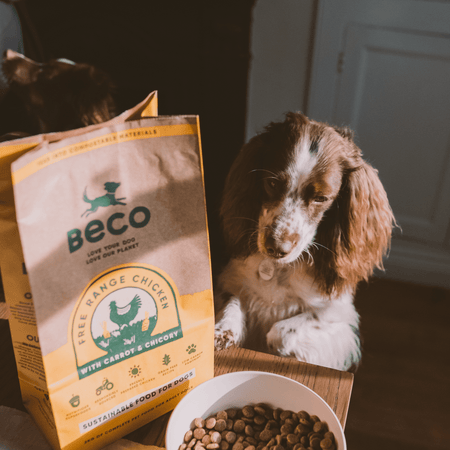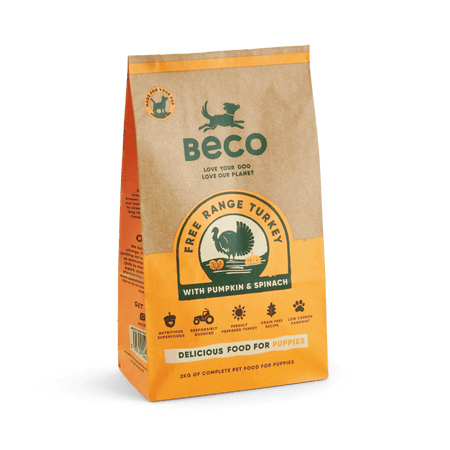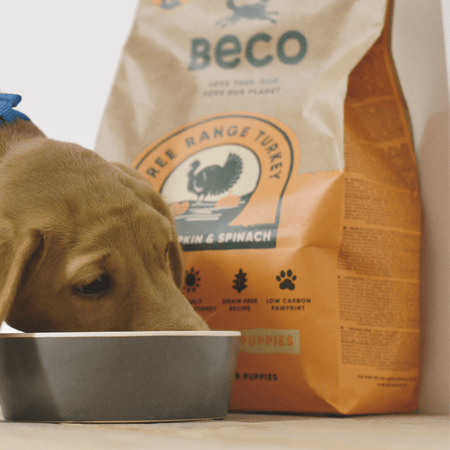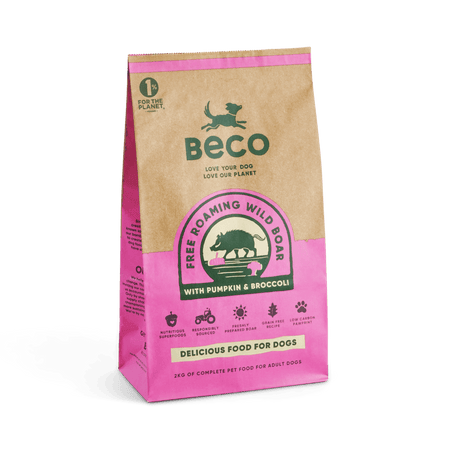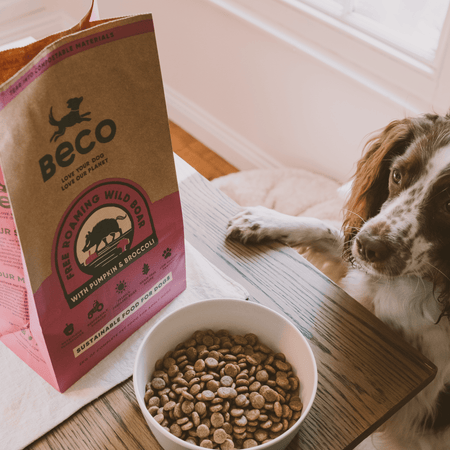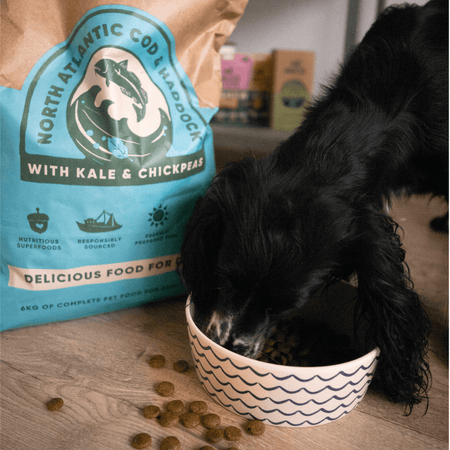Prior to widespread domestication, dogs rolled in fox poo (and other animal faeces) as a means of hiding their scent, so that they might more easily stalk and hunt their prey. You might be wondering why they still do it now, however, many centuries of domestication and breeding, later?
The reality is that it’s a deeply ingrained, innate behaviour, something that’s hard to shake off, regardless of whether it’s still a useful behaviour for modern-day dogs, or not. Let’s look in more detail, then, at just why it was so beneficial for dogs to roll in fox poo, in terms of predation, at least historically speaking.
Dogs masking their own scent
It made perfect sense for dogs to roll in poo to ‘hide their tracks’, so to speak. The animals that wild dogs would typically tend to feed on - namely rabbits, rats and possums - all have highly attuned senses of smell; something which most prey animals tend to have, precisely to avoid being eaten by animals like dogs.
Something strong-smelling such as fox poo might well be less likely noticed, therefore, than if a dog were to stalk up to its prey without having rolled in poo, beforehand. Some people have questioned why dogs tend to roll in fox poo, in particular - why foxes and not some other animal?
Why foxes, in particular?
After all, the fox is another predator, so it might well alert the prey all the same. There’s no definitive answer for this, however it might stem from the availability of fox poo, when compared with other domesticated animals like cows, pigs or sheep.
Another theory, frustrating though this one may be to long-suffering dog owners, is that dogs simply like the smell! It might be repugnant to us, but who knows, maybe it’s the dog equivalent of catnip to them!
How to stop them rolling
It’s easier said than done, such is the pull of that primal instinct. It’s hard to completely avoid where a fox might have been; especially with the rise of the urban fox, their presence in city spaces, in fact, is now almost as common as in their traditional rural origins.
The easiest way of preventing it when you know that there is likely to be fox poo around, however, is simply to have your dog on the lead. Instinct will often override obedience even in dogs with very good recall, so keeping your dog on the lead is the simplest way of avoiding such an issue from arising. Your dog might not thank you for it, but your nose certainly will!
Why is fox poo so smelly?
Just why is fox poo so smelly, though? No poo smells especially floral, of course, but fox poo really takes the crown when it comes to its acrid pungency. Whilst the poo itself has a pretty powerful odour, it’s actually the musk-like liquid excreted from the fox’s scent glands that cause such a whiff.
These glands aren’t unlike a skunk’s, and the fox actually secretes the foul-smelling scent from said glands whenever they do their business. That means when your dog is rolling around in fox poo, they’re actually also rolling around in the remnants of that spray, too - a two-pronged assault on your nasal passage!
How to get rid of the smell
Frustratingly, not only is fox poo one of the smelliest substances your dog can roll in, it’s also one of the most difficult to remove the smell of. Unless you want your whole house to start smelling of fox (and who wants that) then you need to wash and clean your dog’s coat as quickly and as thoroughly as possible.
To clean your dog’s coat properly will take more than just a quick splash of warm water, however, and will require a specialist dog shampoo to really get to work on that smell. There are lots of different, good dog shampoos out there - but here are some of the ones we recommend most: first is Faith in Natures dog shampoo, which is great for dogs with more naturally sensitive skin. Or, if you’re looking to go for something completely natural whilst swapping the pungent smell of fox poo out for great fragrance, then the Little soap company is a good go to.
Why do dogs eat fox poo?
If there’s one thing more unpleasant than seeing (and then smelling) your dog roll around in fox poo, it’s seeing them eat it. Again, though, the question remains as to why? Is it again simply a case of them somehow liking the taste? Well, the answer is (somewhat disgustingly) partially that they do just enjoy the taste, but that’s not the only reason. You’ll be relieved to know (or perhaps you won’t!) that dogs eating poo isn’t uncommon, whether it be their own, another dog’s or a different animal’s, entirely.
Known as coprophagia - stemming from the Ancient Greek words copros, meaning faeces, and phagein, meaning to eat - certain animals are thought to eat poo as a means of sourcing certain digestive enzymes lacking in their diet of processed dry or wet food. Not that this makes it any less unpleasant, of course, and eating poo can actually be quite harmful for dogs. If you are therefore wanting to reduce the chance of your dog getting stuck into fox poo, try and make sure they are on highly nutritious dog food.
How can eating dog poo harm a dog?
The main risk to a dog from eating poo, whether a fox’s or otherwise, is the risk of ingesting parasites such as hookworm or tapeworm. Faecal matter often contains these parasites, which when eaten then survive in the dog’s intestinal tract, leading to blood loss, diarrhea and drastic weight loss. In puppies, it can even be fatal.
That said, worming treatment is easy to come by, and will be recommended by vets for regular application anyway. If you’re able, though, keep your dog away from eating any poo, for its own sake if not yours!

An annoying and smelly habit, though one your dog is unlikely to grow out of anytime soon, rolling around in fox poo is something there’s always a risk of your dog doing. If they do roll around in it, it’s not the end of the world, just make sure to clean up your pooch as quickly as possible! Our canine companions offer us so much positivity that, although it might be annoying, a bit of a smell every now and then seems a small price to pay!











